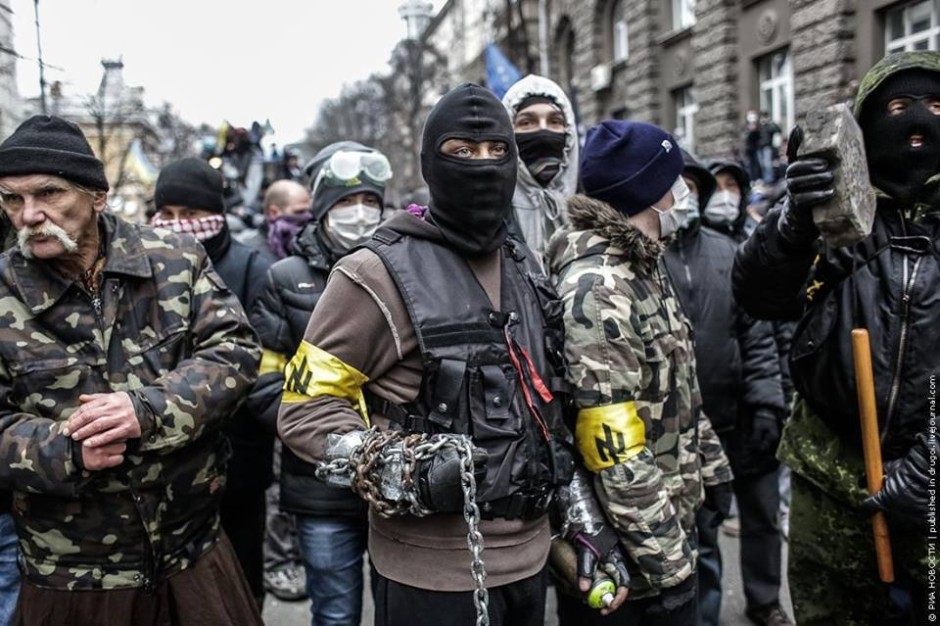The new interim government in Ukraine, led by Prime Minister Arseniy Yatsenyuk, has been acclaimed in the west as a plucky defender of freedom and liberty resisting Russian intimidation and aggression in Crimea. Last week, in a show of sympathy for Ukraine, Yatsenyuk was invited to the White House by U.S. President Barack Obama, and this week, Canadian Prime Minister Stephen Harper is scheduled to visit Kiev, Ukraine`s capital, in a gesture of solidarity.
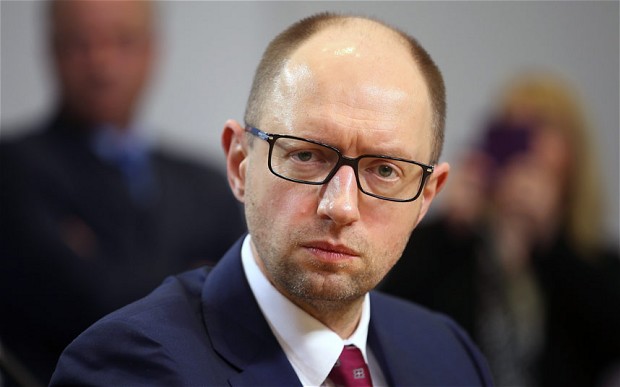
There is something to be said about a government that values democracy and defends its sovereign rights. But lest we forget, four of its cabinet ministers come from the extreme right-wing Svoboda Party, which holds 37 seats in parliament and has increased its membership from 5,000 in 2004 to 15,000 today.
Its leader, Oleh Tyahnyabok, is an embarrassment to Ukraine. He has not only glorified Stepan Bandera, a Ukrainian nationalist who collaborated with Nazi Germany, but has compiled a record of antisemitism worthy of a neo-Nazi. Nonetheless, U.S. Secretary of State John Kerry met Tyahnyabok, while U.S. Senator John McCain appeared on a stage with him.
Adding to the unease is Dmytro Yarosh, who was recently appointed deputy director of Ukraine`s security council. Yarosh is the leader of the Right Sector, an umbrella group of extreme right-wing organizations founded in the last few months. Like Tyahnyabok, Yarosh reveres Bandera, whose bands murdered Jews.
The fact that Tyahnyabok and Yarosh are affiliated with the Ukrainian national unity government is both a cause for trepidation and a pretext for Russia.
Yatsenyuk may be a moderate politician who deserves western encouragement and support, but his credibility is at risk because he has chosen extremists to be government ministers.
Referring to them at a recent press conference in Moscow, Russian President Vladimir Putin justified Russia’s intervention in Crimea on the basis of the composition of Ukraine’s government.

As he said, “What is our biggest concern? We see the rampage of reactionary forces, nationalist and antisemitic forces going on in certain parts of Ukraine, including Kiev.”
Putin was referring to a series of events that led to the ouster of the duly elected pro-Russian president of Ukraine, Viktor Yanukovych, now in exile in Moscow. Yanukovych, a corrupt politician, sparked outrage and anger after reneging on a promise to conduct trade talks with the European Union.
Yanukovych`s volte face, a reaction to intense Russian pressure, touched off peaceful demonstrations in Kiev`s Freedom Square. These protests turned violent after police fired on demonstrators, killing more than 80 people. In the wake of the bloodshed, Yanukovych fled to Russia in the dark of the night, insisting he was still president.
Russia, falsely claiming that the lives of Crimea’s ethnic Russian population were in danger, took over the region, which was part of the Soviet Union until 1954. In response, Yatsenyuk, a leader of Fatherland, the political party of Yulia Tymoshenko, Ukraine`s former prime minister, invited the Svoboda Party to join the national unity government.
The most senior Svoboda Party representative in the cabinet, Oleksandr Sych, is vice prime minister. Andriy Mokhnyk is minister of ecology. Ihor Shvayka is minister of agriculture. Ihor Tenyukh is minister of defence.
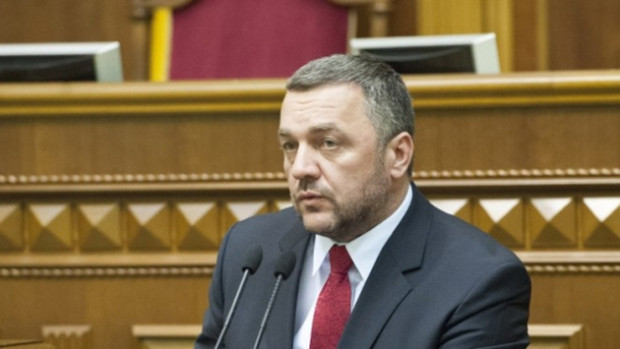
Like Putin, Russian Foreign Minister Sergei Lavrov has made political hay of the Svoboda Party’s inclusion in the government: “To our great regret, (the interim government) is dependent on the radical nationalists, who seized power in an armed attack.”
Strangely enough, the United States tolerates Svoboda’s presence in the Ukrainian government.
Ira Forman, the Obama administration’s special envoy on antisemitism, claimed in an interview with the Jewish Daily Forward that Putin’s claim lacks credibility. As he put it, “We have no indication that what President Putin has been saying about antisemitism has been a true reflection of what’s happening on the ground” in Ukraine.
Forman misses the point, but in the meantime, Russia is capitalizing on the turmoil in Ukraine by meddling in the affairs of Crimea, which was annexed by Russia during the reign of Catherine the Great and has been the home of Russia’s Black Sea fleet for more than two centuries.

And now, seeking to resurrect Russian power since the demise of the Soviet Union, Putin covets Crimea. The referendum in Crimea on March 16, in which more than 90 percent of voters cast ballots to secede from Ukraine, will only embolden Putin. In all probability, Russia will annex Crimea in a fait accompli that the west will be powerless to roll back.
Understandably enough, nationalists in Ukraine consider Crimea to be Ukrainian, even though most of Crimea’s inhabitants are ethnic Russians who sympathize with Russian objectives.
Ukrainian political parties, particularly the Svoboda Party, are passionate about this issue.
Svoboda, one of Ukraine’s major parties, was founded in 1991, when the Soviet Union broke up. Formerly known as the Social National Party of Ukraine, it changed its name to Svoboda in 2004, when Tyahnyabok, a surgeon from the western city of Lviv, took control.
In a bid to soften its image, Tyahnyabok abolished the party’s official black and yellow logo, which resembled a swastika. In 2012, when Svoboda won 10.4% of the vote in the general election, he distanced himself and his party from antisemitism. “Svoboda is not an antisemitic party, or an xenophobic party,” he declared. “Svoboda is simply and only a pro-Ukrainian party.”

Nevertheless, the European Parliament in 2012 condemned Svoboda, saying its racism, antisemitism and xenophobia run contrary to EU “fundamental values and principles.”
Tyahnyabok’s anti-Jewish statements are certainly incriminating.
In 2004, the year he assumed Svoboda’s leadership, he urged Ukrainians to fight the “Moscovite-Jewish mafia.” And in an unteachable moment, he claimed that the correct Ukrainian word for Jew is “Zhyd,” a term Ukrainian Jews deem derogatory.
Tyahnyabok, in 2005, signed an open letter to Ukraine’s president calling for a parliamentary investigation into the “criminal activities of organized Jewry in Ukraine.”
And he has praised Bandera as an exemplary nationalist, having said he fought “Moscovites, Germans, Jews and other scum who wanted to take away our Ukrainian state.”
At best, Jews in Ukraine are wary of Svoboda.
Ukraine’s chief rabbi, Yaakov Bleich, has described it “a right-wing nationalist party with antisemitic elements in it.” Oleksandr Feldman, a Jewish activist, parliamentarian and Yanukovych supporter, is blunter. Svoboda is “notorious for regularly injecting antisemitism in its speeches and public pronouncements,” he said.
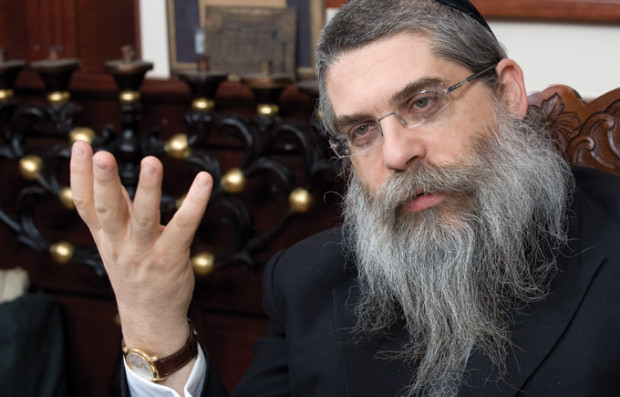
And in another sign that Svoboda inspires mistrust among many Jews, 30 members of the Israeli Knesset recently condemned it.
To liberals in Ukraine, the Right Sector, with some 5,000 members, is a source of worry as well.
Yarosh, a teacher, was one of the founders of Trident of Stepan Bandera, an association that venerates his memory. Haaretz, the Israeli daily, reported that the Right Sector distributed Mein Kampf, Adolf Hitler’s manifesto, and Protocols of the Elders of Zion, an anti-Jewish czarist forgery, in Kiev’s Independence Square.
Yarosh, though, has condemned antisemitism and xenophobia. He claims that 40 percent of the Right Sector’s members are ethnic Russians, many from eastern Ukraine, a bastion of pro-Russian sentiment.
On Feb. 26, Yarosh and his associates met with Israel’s ambassador to Ukraine to inform him that the Right Sector rejects antisemitism and opposes chauvinism and xenophobia.
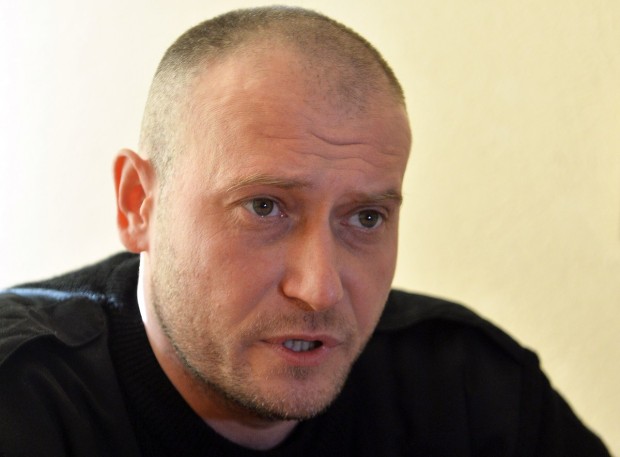
The Right Sector, too, participated in the funeral procession of a Jewish protester who was killed by police in Kiev in the waning days of the mass demonstrations in Kiev.
It’s clear that the Svoboda Party, in particular, has tried to improve its image by disavowing antisemitism. But enough evidence of its animus to Jews has already emerged to arouse strong suspicion about this outfit.
Yatsenyuk should clarify his position on his party’s alliance with the Svoboda Party. Ukrainian independence should not be held hostage to extremists.
